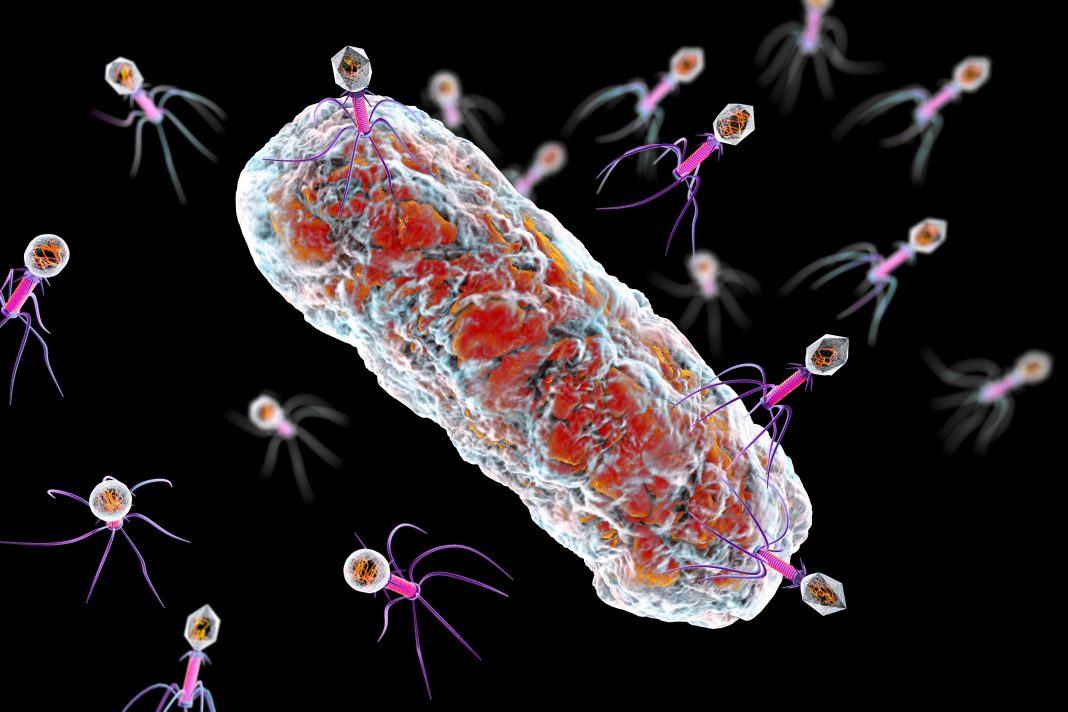After years of dealing with a recurrent, drug-resistant, bacterial blood infection, a patient agreed to try phage therapy. Within 24 hours of receiving phage therapy, the patient’s blood infection had resolved and she could go home, where she continued the phage and antibiotic combination.

The patient developed a few short-lived breakthrough infections, which indicated the bacteria was getting around the therapy, so the researchers found an additional phage that targeted her bacteria. With the addition of the new phage, the patient was blood infection-free for four months and able to travel out of state for a for a family beach vacation. However, just over six months after starting phage therapy, the blood infection returned, and the phage-antibiotic combination was thought to be no longer effective. The patient died in 2022.
This case study is published in mBio in the paper, “Bacteriophage and antibiotic combination therapy for recurrent Enterococcus faecium bacteremia.”
The patient’s infection was caused by Enterococcus faecium—a bacterial strain that displays intrinsic resistance to many antibiotics. Most clinical E. faecium isolates have acquired vancomycin resistance, leaving clinicians with a limited repertoire of effective antibiotics. Vancomycin-resistant E. faecium (VREfm) has become an increasingly difficult to treat nosocomial infection.
The patient was a 57-year-old woman who had a complex medical history and an autoimmune condition that required immunosuppression to treat. Along the course of her medical journey, drug-resistant E. faecium colonized her gut and spread to her blood, causing recurrent bloodstream infections that required multiple and prolonged hospitalizations between 2013 and 2020. Finally, in late 2020, after a month-long hospitalization, doctors determined that antibiotics were no longer working and suggested phage therapy.
A team from the University of Pittsburgh School of Medicine tested the E. faecium strain against wastewater collected from across the country to find a bacteriophage that was hypothesized to target the drug-resistant bacteria. Scientists at the University of Colorado discovered the phage that targeted her bacterial strain and sent it to Pittsburgh where it was grown, prepared in Van Tyne’s lab, and then given to the patient alongside antibiotics.
In order to learn why the infections recurred despite the combination being previously effective, laboratory testing revealed that the patient’s immune system had likely activated in a way that blocked the phages from attacking the bacteria. More specifically, “an anti-phage neutralizing antibody response occurred that coincided with an increased relative abundance of VRE in the GI tract, both of which may have contributed to clinical failure.” The researchers suspect that either the addition of the second phage or the increased dose of the phage combination (or both) had prompted the immune response.
“What we learned from this patient and her allowing us to follow and document her medical journey will help future patients,” said Van Tyne. “Phage therapy could be a powerful tool against the ever-growing threat of antibiotic resistance and the data from her case will help shape clinical trials that could one day make it widely available to patients in need.”
Doctors are increasingly interested in phage therapy when all else fails to fight a deadly bacterial infection. But as the therapy is not currently approved by the FDA, it is not widely available. This case study required emergency investigational new drug approval from the U.S. Food and Drug Administration (FDA). The researchers expect the results from this study will inform future use of the therapy.


